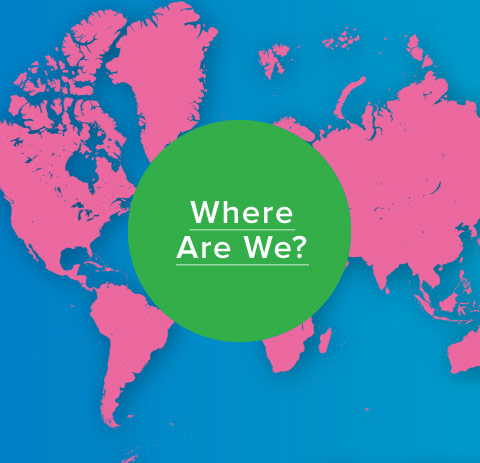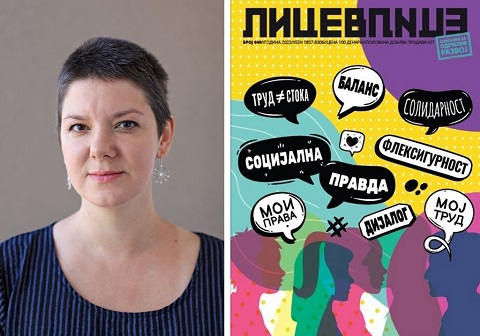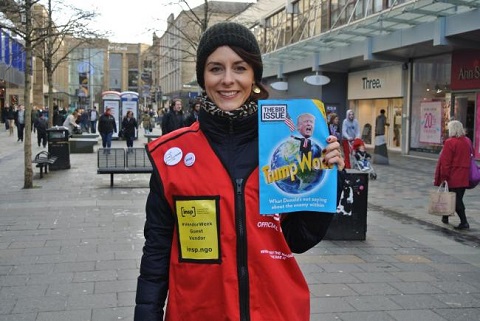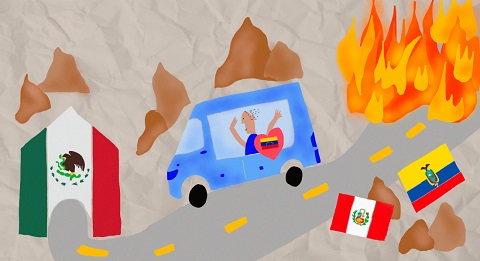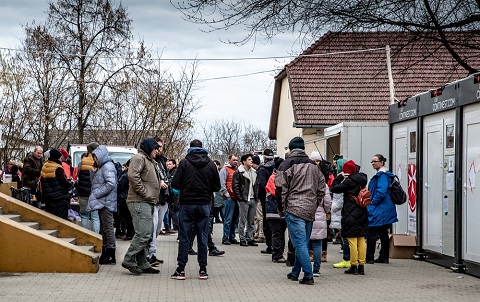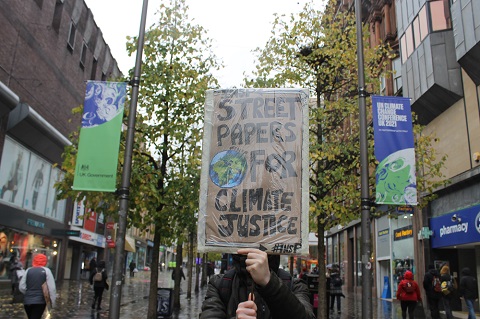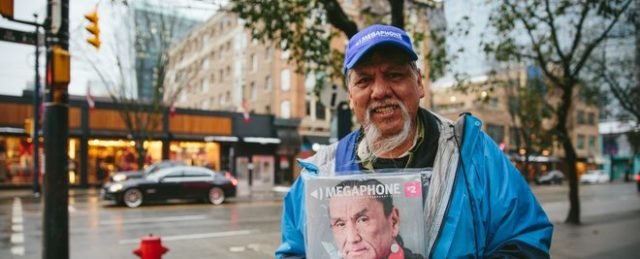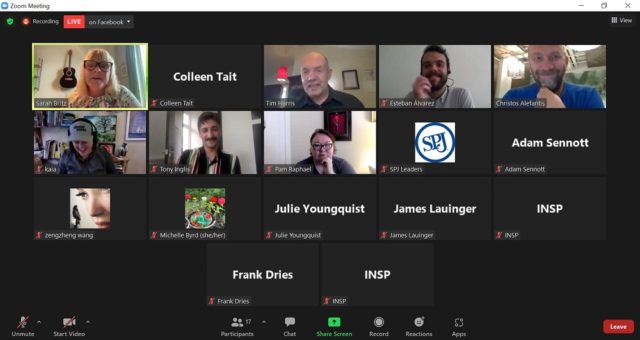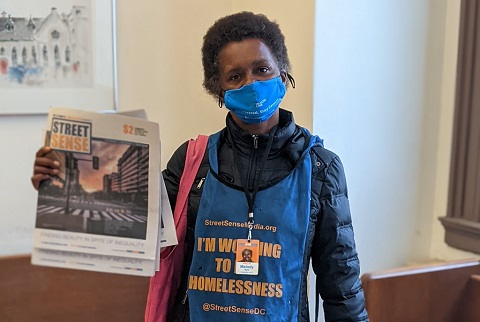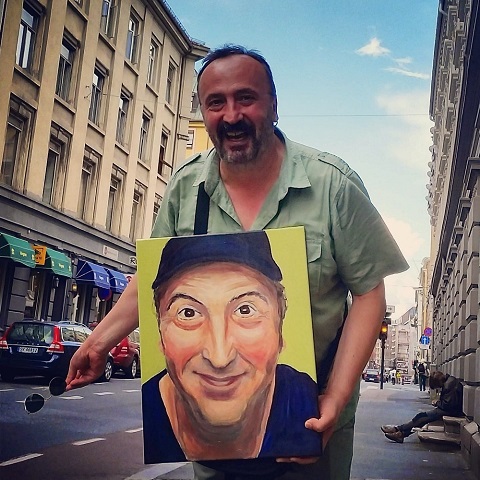INSP: What does the social work team at zebra.‘s day-to-day look like? Are you working with just those who sell the magazine, or do you have a wider scope?
zebra.: We try to support people based on their needs. Mostly these are: job searching, looking for a flat, or working through bureaucracy, which is mainly obtaining different permits they must carry. Additionally, we try to empower the vendors to an autonomous life with a possibly stable job and a safe position in our society. We work only with people who are selling the street paper and anyone who wants to.
Where do zebra. vendors commonly come from and what issues are they dealing with?
At the moment we have vendors in our project that come from ten different countries and four continents, but most of them – 80 per cent to be exact – come from Nigeria. Nearly all of them are asylum seekers, but it is very difficult to get international protection or any other permit without a stable job, which is incredibly hard to get. Also, the time it takes to get any result regarding a permit is unbelievably long. In consequences to that, people in that situation keep living in an unstable and unsure situation for years which leads to difficulties in getting a proper job and the chance to rent a flat. It’s also incredibly stressful and emotionally intense, which can be a barrier to focus on education and other important things in their lives.

How many of the people who sell zebra. could be considered a refugee? How has this fluctuated over the last few years?
Five people received political asylum. 80 per cent of the other sellers either got another kind of protection (such as sussidiaria, or special protection – e.g. humanitarian protection) or are still waiting for a response (which means they are still asylum seekers). This has been the case since 2016.
How does your work at zebra. with refugees compare to other organisations in the country, and how does it sit within the general feeling about the refugee crisis in the country?
We think the project is quite special because its main goal is to promote participation and empowerment of the refugees selling the paper. Unfortunately, the main approach in the support system in Italy is quite welfare-focused and doesn’t really promote projects that support the development of people’s will and autonomy.
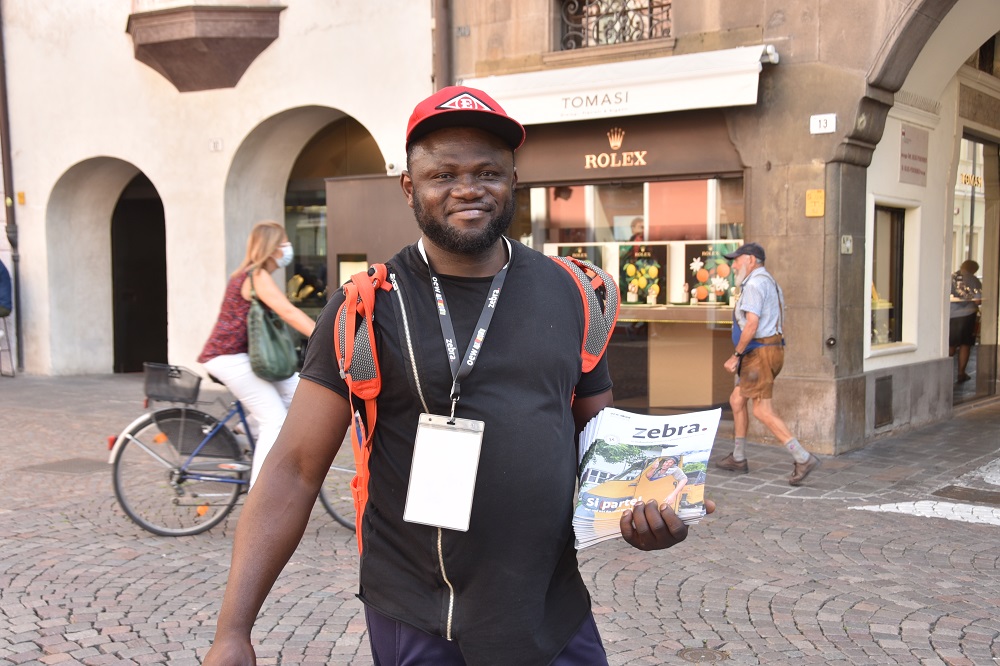
The definition of a “refugee” is not nailed down, especially in a world when conflict, social persecution and the climate crisis all play a part in the flow of people. Can you give a general picture of the journeys and experiences of some of the refugees you work with?
Among the zebra. vendors, we can identify several people who had to leave their countries because of social or religious conflict, or persecution. Not only that, there are also people who were pushed to leave their country because of the extreme poverty in which they were forced to live. The common denominator that unites the zebra. vendors is definitely the search for a more prosperous situation than they could have hoped for in their own country. Refugees are in a more severe position among typical street paper vendors, due to the increased likelihood of the refugee being subject to racism, discrimination, traumatic experiences, and marginalisation.
Upon arriving in Italy, what are the main problems and obstacles refugees encounter?
During their path of integration in Italy, there are numerous difficulties that refugees and migrants have to face. From a social point of view, they have to face resistance from society due to cultural differences, leading to acts of racism and discrimination. From a more practical point of view, they face difficulties in finding a job, a house to live in, being able to navigate the bureaucracy of a foreign country and in obtaining the necessary permits to legally be located in the county. Also, the languages (German and Italian) in South Tyrol are a very challenging factor.
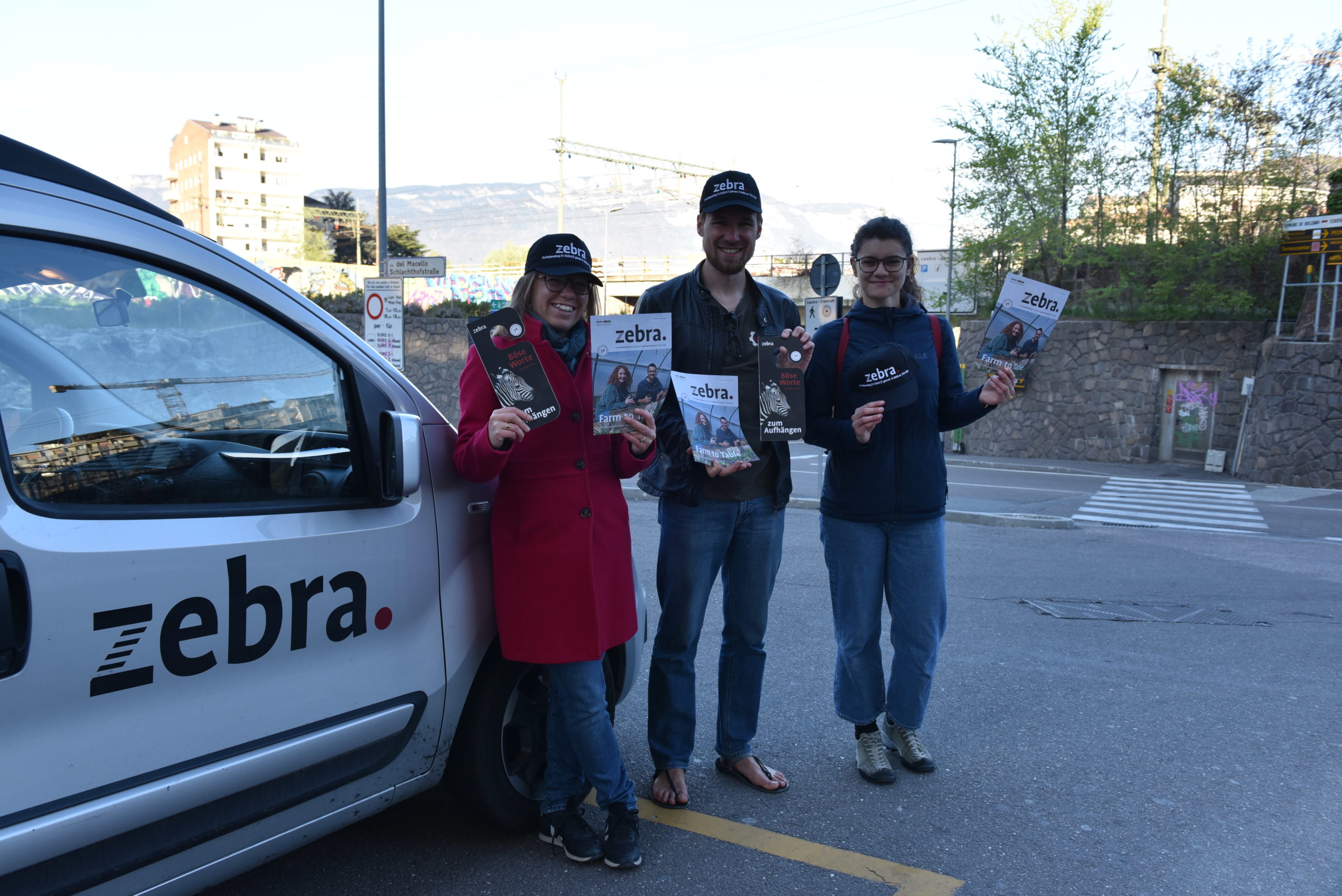
What specific assistance and services do you and zebra. provide to the refugees you work with?
zebra. provides support to the refugees in their journey that aims at social and working inclusion. This is done through the drafting of a project plan in which, together with the person, we define the priorities in which the person needs our help in order to achieve autonomy from zebra. This project plan very often includes helping them subscribe to Italian or German language courses, support in the process of finding a house, and support in looking for a job.
What part do street papers have to play in the refugee crisis and the flow of people? What do street papers mean to this community of people?
Street papers could be an instrument from which they can receive support in order to achieve social inclusion. Street papers can touch the realm of advocacy and promote a more sensible public perspective on marginalised people throughout our society. During the last eight years we have had a lot of success stories of women and men that have achieved stable employment, a flat for themselves, and the chance for them and their families to finally restart their life.
Read the stories of refugees who are now street paper vendors here.
Courtesy of the International Network of Street Papers




